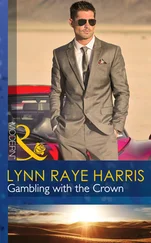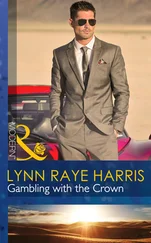Silas Hocking - A Gamble with Life
Здесь есть возможность читать онлайн «Silas Hocking - A Gamble with Life» — ознакомительный отрывок электронной книги совершенно бесплатно, а после прочтения отрывка купить полную версию. В некоторых случаях можно слушать аудио, скачать через торрент в формате fb2 и присутствует краткое содержание. Жанр: foreign_prose, на английском языке. Описание произведения, (предисловие) а так же отзывы посетителей доступны на портале библиотеки ЛибКат.
- Название:A Gamble with Life
- Автор:
- Жанр:
- Год:неизвестен
- ISBN:нет данных
- Рейтинг книги:5 / 5. Голосов: 1
-
Избранное:Добавить в избранное
- Отзывы:
-
Ваша оценка:
- 100
- 1
- 2
- 3
- 4
- 5
A Gamble with Life: краткое содержание, описание и аннотация
Предлагаем к чтению аннотацию, описание, краткое содержание или предисловие (зависит от того, что написал сам автор книги «A Gamble with Life»). Если вы не нашли необходимую информацию о книге — напишите в комментариях, мы постараемся отыскать её.
A Gamble with Life — читать онлайн ознакомительный отрывок
Ниже представлен текст книги, разбитый по страницам. Система сохранения места последней прочитанной страницы, позволяет с удобством читать онлайн бесплатно книгу «A Gamble with Life», без необходимости каждый раз заново искать на чём Вы остановились. Поставьте закладку, и сможете в любой момент перейти на страницу, на которой закончили чтение.
Интервал:
Закладка:
"But how? Oh! I will do anything for you. Tell me what I can do for the best."
"Make your way into town as fast as you can. Tell the first man you meet how I am situated. Let one party come round here with a boat, and another party come over the cliffs with a stretcher. Everything depends on the time it takes."
"Oh! I will fly all the distance," she said, with liquid eyes; "but who shall I say is hurt? I do not even know your name."
"Rufus Sterne," he answered. "Everybody in St. Gaved knows me."
She looked at him for a moment, pityingly, pleadingly, then rushed away over the level sand in the direction of Penwith Cove. She forgot her bruises and stiffness, and did not heed that every step was a stab of pain.
Rufus Sterne was lying helpless – helpless because he had risked his life to save her from the consequences of her folly. And all the while the tide was coming in, and he would be watching it rising higher and higher, and if help did not reach him before the cold salt water swept over his face, he would be drowned, and she would be the cause of his death.
How she climbed the zig-zag path out of Penwith Cove she never knew. She ran and ran until she felt as though she could not go a step farther even to save her life, and if her own life only had been at stake she would have lain down on the cliffs and taken her chance.
But it was his life that was in jeopardy, and to her excited imagination his life seemed of more value than the lives of a hundred ordinary people.
She had read of heroes in her girlhood days, and thrilled over the story of their exploits, but no hero of fact or fiction had ever so touched her heart as this lonely man who was lying helpless at the foot of the cliffs, watching with patient and suffering eyes the inflowing of the tide.
"Oh! he must be saved," she kept saying to herself, "for he deserves to live. And I must be the means of saving him."
She stumbled into St. Gaved rather than ran. Her hat had disappeared, her glorious hair fell in billows on her shoulders and down her back, her eyes were wild and tearless, her lips wide apart, her breath came and went in painful gasps. She nearly stumbled over one or two children, and then she pulled up suddenly in front of a policeman.
Constable Greensplat stared at her as though she had escaped from Bodmin lunatic asylum.
"There's – not – a – moment – to – be – lost," she began, and she brought out the words in jerks. "Rufus Sterne is lying with a broken leg at the foot of the cliffs half-way between here and Penwith Cove."
Then she staggered to a lamp-post and put her arm round it. A small group of people gathered in a moment.
"How did he break his leg?" Greensplat asked, putting on an official air.
"He slipped over a rock," she answered; "but there's no time for explanations. The tide is coming in, and if he's not rescued quickly he'll be drowned. He told me to ask that one party go round with a boat, and the other go over the cliffs with a – a stret – " But she did not finish the sentence. The light of consciousness went out like the flame of a candle before a sudden gust of wind. She reached out her hands blindly and appealingly, staggered toward the nearest house, and before anyone could reach her side she fell with a thud, and lay in a dead faint on the floor.
CHAPTER VI
FAITH AND PHILOSOPHY
Rufus watched the rising tide with as much composure as he could command. It was the first time in his life that his philosophy had been put to the test, and the strain brought it near to breaking-point. He found it easy enough to pick holes in the creed in which he had been reared, and had rather prided himself that he had shaken himself free from what he called the bondage of ecclesiastical superstition. But there was something that still remained and which he was scarcely conscious of until now – something which he could not very well shape into words; something for which he could find no name.
His landlady, Mrs. Tuke, called him an unbeliever, and he accepted the description without demur; but a negative implies a positive. Unbelief in one direction means belief in the opposite. He certainly did not believe the dogmas his grandfather insisted upon with so much passion and vehemence. He had laughed to scorn the thunderings of the little Bethel to which he had been compelled to listen as a lad. He had torn the swaddling clothes of orthodoxy into tatters, and cast them from him as though they were unclean. He had wandered for three or four years in the realm of pure negation, scorning all creeds and denying all religion. Yet now, when life seemed narrowing to its final close, he discovered as in a sudden accession of light, that the last word on the subject had not been spoken.
For the first time in his life he realised that religion is not a creed, nor an ordinance; that it is not something apprehended by the exercise of the mind, and that it is only remotely related to ecclesiasticism. Its roots went deeper. It is instinct; it is of the very substance of life.
He had drawn himself as far up the shelving cliff as possible, though every movement was torture, and with steady eyes he watched the tide rising higher and higher. There was something fascinating in its steady approach. It was not an angry tide, breaking and foaming and struggling to reach its prey. It came on with slow and tranquil movement. There was scarcely a ripple on its surface. Far out in the line of the sinking sun it was like a great sheet of gold. Its voice was a low monotone, as it washed the pebbles in a slow and languid way. Here and there it raised itself like a sleeping monster taking in a long breath, but the swell never broke into sound or foam.
And yet to Rufus Sterne it never seemed more relentlessly cruel. Its stealthy creep and crawl seemed positively vindictive. Its voice was no longer the tinkle of silver bells, but the cynical laughter of fiends.
He made a desperate effort to pull himself still higher up the cliff, but that proved to be impossible. He could only lie still and wait. When the tide reached its flood it would be a dozen feet above where he lay. Would he sleep soundly or would dreams disturb his rest?
He had very little hope of being rescued alive. It was a long way round by Penwith Cove to St. Gaved, and even if the beautiful girl he had rescued – he did not know her name – ran all the distance, and men with the stretcher ran all the way back, it seemed scarcely possible that they could reach him in time.
He would like to live. The desire for life was never stronger than now. It was not so much that he was afraid of death – he was a little afraid of it, he was compelled to be honest with himself – but two things seemed to intensify his desire for life. The first was his great invention, which was now in process of being perfected; and the other was —
Well the other was an indefinable something which he was not able to shape into words. Something vaguely connected with the sweet-eyed girl whom he had that afternoon rescued from death. He did not understand what subtle influence had been set in motion; did not comprehend the nature of the spell, but the fact remained that the world seemed a brighter place since she came to the Hall, and life a richer inheritance.
It was not a matter that he could discuss even with himself. It was too shadowy and elusive. To attempt to reason the matter out would be to destroy a sweet illusion – for that it was illusion he had no doubt. And yet the illusion, or the impression, or the sensation, or whatever it might be, was so delightful that he had not the courage to touch it.
Life had not possessed so many pleasures for him that he could afford to scorch with the white flame of logic even the faintest and most shadowy of them. He had had a hard and unloved childhood, a youth from which all sympathy had been excluded, and a manhood of badly compensated toil and unrealised ambition. And now when life's stern and dusty way seemed opening out into the green pastures of success, and there had strayed across his path a sweet-eyed stranger whose very smile breathed hope and peace, it was not at all surprising that the desire for life burned with an intenser flame than ever.
Читать дальшеИнтервал:
Закладка:
Похожие книги на «A Gamble with Life»
Представляем Вашему вниманию похожие книги на «A Gamble with Life» списком для выбора. Мы отобрали схожую по названию и смыслу литературу в надежде предоставить читателям больше вариантов отыскать новые, интересные, ещё непрочитанные произведения.
Обсуждение, отзывы о книге «A Gamble with Life» и просто собственные мнения читателей. Оставьте ваши комментарии, напишите, что Вы думаете о произведении, его смысле или главных героях. Укажите что конкретно понравилось, а что нет, и почему Вы так считаете.












